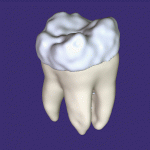
It’s never too late to quit smoking and there are many benefits to be gained no matter what age you are when you give up. If you want to stop smoking, you can make small changes to your lifestyle that may help you resist temptation to light up.
1) Think positive
You might have given up before, but tell yourself that you’re really going to do it this time.
2) Make a plan to quit smoking
Make a promise, set a date and stick to it. Don’t be put off by a wedding, party or other time when you’d normally smoke.
3) Change your diet
Is your after-dinner cigarette your favourite? A US study revealed that some foods, including meat, make cigarettes more satisfying. Others, including cheese, fruit and vegetables, make cigarettes taste terrible. So swap your usual steak or burger for a veggie pizza instead.
4) Change your drink
The same study looked at drinks. Fizzy drinks, alcohol, cola, tea and coffee all make cigarettes taste better. So when you’re out, drink more water and juice. Some people find that simply changing their drink (for example, switching from wine to a vodka and tomato juice), affects their need to reach for a cigarette.
5) Identify when you crave cigarettes
A craving can last five minutes. Before you give up, make a list of five-minute strategies. For example, you could leave the party for a minute, dance or go to the bar. And think about this: the combination of smoking and drinking heavily raises your risk of mouth cancer by 38 times.
6) Tell everyone that you are giving up smoking
If friends or family members want to give up too, suggest to them that you give up together. A team effort may be easier than going it alone.
7) Get moving
A review of scientific studies has proved that exercise (even a five-minute walk or stretch) cuts cravings and may help your brain to produce anti-craving chemicals.
8) Make non-smoking friends
When you’re at a party, stick with the non-smokers. When you look at the smokers, don’t envy them. Think of what they’re doing as a bit strange – lighting a small white tube and breathing in smoke.
9) Keep your hands and mouth busy
Nicotine replacement therapy (NRT) can make you twice as likely to succeed. As well as patches, there are tiny tablets, lozenges, gum and a nasal spray. If you like holding a cigarette, use an inhalator. Try putting your drink in the hand that usually holds a cigarette, or drink from a straw to keep your mouth busy.
10) Write a list of the reasons why you want to stop.
Keep reminding yourself why you gave up. Make a list of the reasons and read it when you need support.






